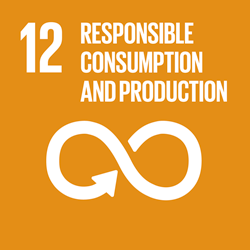Technological watch
Performance of Biodegradable Biochar-Added and Bio-Based Plastic Clips for Growing Tomatoes
Increasing quantities of waste from using conventional plastic in agriculture and horticulture is one of the most pressing issues nowadays. Conventional plastic accessories (e.g., mulching films, clips, pots, strings, etc.) are typically fossil-derived, non-biodegradable and difficult to recycle after their use. Therefore, there is a need for biodegradable and bio-based alternatives with similar properties to conventional plastics, which can be disposed of through degradation in water, soil or compost under specific conditions. This work investigated the properties and the performance of biodegradable biochar-added and bio-based stem and arch support clips. In addition, the investigated clips were composted with tomato residues during 16 week laboratory composting. The scope of this work included: (1) the production of stem and arch support clips in a pilot installation using injection molding technology, (2) an analysis of their chemical composition, biodegradability, disintegration and phytotoxicity, (3) an evaluation of their performance in the greenhouse cultivation of tomatoes and (4) an evaluation of the composting of the clips with on-farm organic waste as an end-of-waste management method. The stem support clips during industrial composting (58 °C) degraded at 100% after 20 weeks, whereas during home composting (30 °C) the degradation was slow, and after 48 weeks the maximum weight loss was 5.43%. Disintegration during industrial composting resulted in 100% fragmentation into particles with sizes less than 2 mm. Phytotoxicity tests demonstrated that the substrates after industrial and home composting did not have a negative effect on the growth of the test plants (i.e., mustard, wheat, cuckooflower). The biochar-added stem support clips proved to be satisfactory alternatives to conventional non-biodegradable, fossil-derived clips and can be disposed of through composting. However, more work is needed to determine the optimal conditions for composting to ensure rapid degradation of the clips in relevant environments.
Publication date: 16/10/2022
Author: Krystyna Mali?ska
Reference: doi: 10.3390/ma15207205






